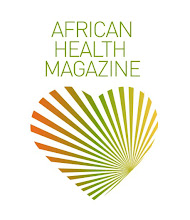
HIV-related deaths could be reduced by 20% over the next five years if treatment begins earlier, the World Health Organisation (WHO) says in fresh guidance.There were over 5m people receiving treatment for the virus at the end of 2009, up more than a million from 2008 - the largest ever increase in a year.The guidelines would raise the number needing treatment to 15m by 2015.But there are concerns about funding as countries potentially cut back on aid.
Unveiling its first new guidance for four years at the Aids 2010 conference in Vienna, the WHO says it wants treatment with a cocktail of drugs to begin before the virus seriously undermines the patient's immune system. This means changing the threshold at which a drugs regimen should be started from 200 CD4 cells per microlitre of blood to 350, regardless of symptoms. These cells are the key marker of the health of the immune system.Starting treatment sooner could prevent opportunistic infections such as tuberculosis, which is the number one killer of those with HIV. According to Dr Gottfried Hirnschall (WHO director of HIV/Aids) earlier treatment has prevention benefits In addition to saving lives. Early treatment reduces the level of virus in the body which means HIV-positive people are less likely to pass the virus on to their partners.
Expanding treatment to more people will push the costs for 2010 up to $9bn, according to UN estimates. But experts stress that extra costs would be more than offset by decreased hospital costs, increased productivity, fewer children orphaned by Aids and a fall in new HIV infections.People with weaker immune systems who come late for treatment require more complex and costly drugs and services than those who start treatment earlier and are healthier.
According to WHO, The investments made today can not only save millions of lives but millions of dollars tomorrow.
Source: BBC health
Photo credit: BBC health,SPL



No comments:
Post a Comment